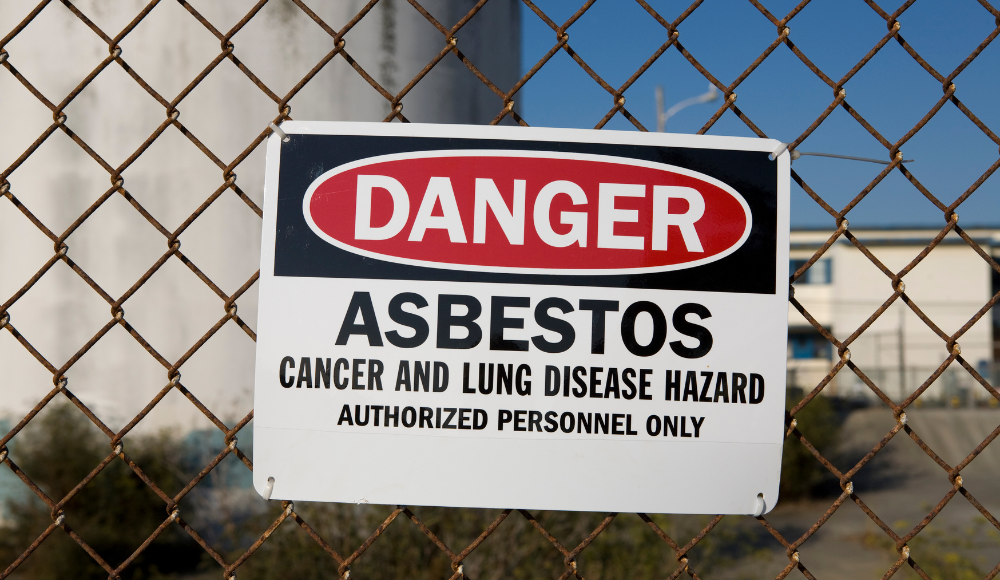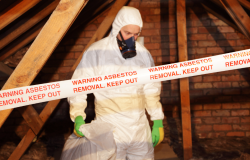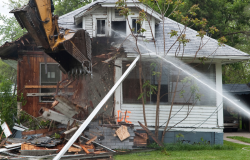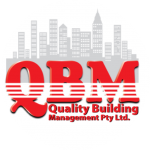The Health Risks of Airborne Asbestos: Why Air Testing is Essential
Disturbed asbestos can remain in the air for up to 72 hours. But even after it’s settled, the slightest draft could cause the asbestos fibres to become airborne again. Being invisible to the naked eye makes them extremely dangerous.
Insulation that’s deteriorated and crumbling construction materials are often two of the places you’ll find asbestos lurking.
Airborne asbestos testing in Brisbane may be mandatory in certain circumstances and with good reason. Read on to find out why it’s so important.
Associated Health Risks with Airborne Asbestos Exposure
There is no safe form of asbestos. Exposure to airborne asbestos can lead to a whole range of very serious diseases. These include:
- Mesothelioma: a cancer of the lung lining with a low survival rate
- Lung cancer: particularly risky if brown asbestos is present
- Asbestosis: a chronic lung disease that may only appear years after exposure
Importance of Air Testing for Asbestos
Anyone who wishes to safely manage premises that they are responsible for and which may contain asbestos should be vigilant. Regular airborne asbestos testing can warn of the dangers and prevent asbestos-related health risks.
Air testing involves taking samples to determine whether airborne asbestos fibres are present. It assesses the risk of exposure and examines the effectiveness of any existing control measures.
You should arrange for airborne asbestos testing:
- Before any work that may involve the disturbance of asbestos
- During any removal or corrective projects
- As part of the ongoing management process where asbestos is present
Airborne asbestos testing is only of credible value if experts perform it. This means using certified laboratories and accredited professionals is essential. In most instances, strict rules govern who can conduct the testing process.
Property owners and employers tend to be the first to know about air sampling tests. The information can then get cascaded down to:
- Employees in the workplace
- Those who have access to the workplace or location
- Health and safety representatives for the premises
- Those who carry out business at the location
The Benefits of Air Testing for Asbestos
An important consequence of asbestos air testing is that it can let you know if you’ve experienced exposure to asbestos at some point. It can also inform you about the risk of current or past exposure. And it acts as a mechanism to help you decide whether or not your existing air quality monitoring systems are effective.
Regular airborne asbestos testing will bring peace of mind and help everyone involved in managing a building stay stress-free. Asbestos testing can reveal all the hazardous components in the air.
It also demonstrates that owners and managers have been acting responsibly. This can have a tangible impact on maintaining a property’s value and reputation.
Airborne asbestos testing can help ensure the following:
- Compliance with current safety protocols
- The health and safety of those occupying affected premises
- The protection of workers from asbestos exposure
You should request air monitoring in any of these circumstances:
- Your control measures have proved to be insufficient
- When any occupied areas are set to get demolished or renovated
- During the removal of asbestos in occupied spaces
- The removal of either friable or non-friable asbestos
It’s vital not to underestimate the importance of asbestos air monitoring and testing. This is especially true in occupied premises where asbestos is present. Employers and property managers have an obligation to manage the presence of asbestos in a responsible manner.
Contact QBM for Asbestos Testing in Brisbane
Airborne asbestos testing is an essential component of the asbestos monitoring process. Contact QBM today to discuss all your asbestos testing needs.






